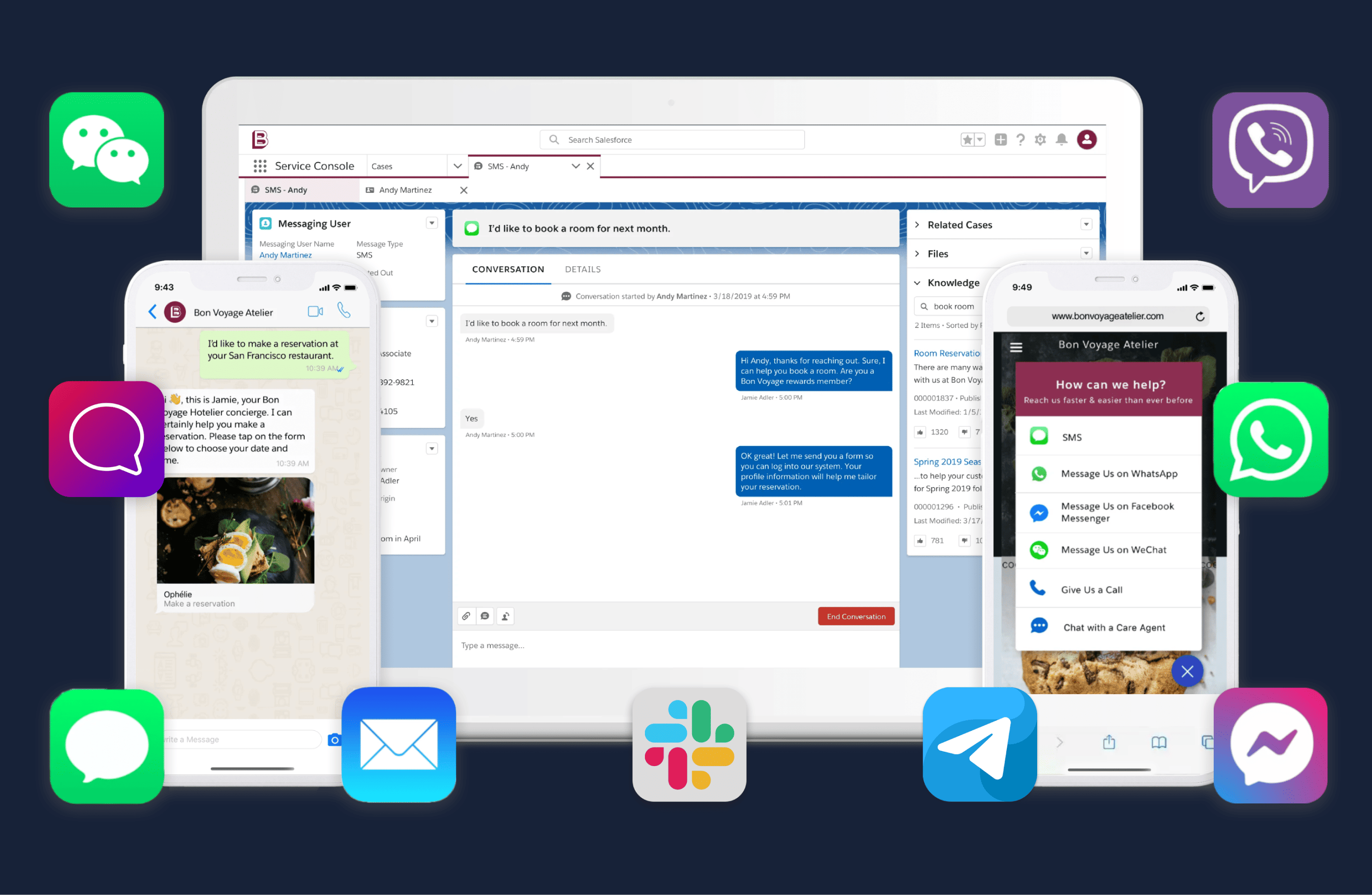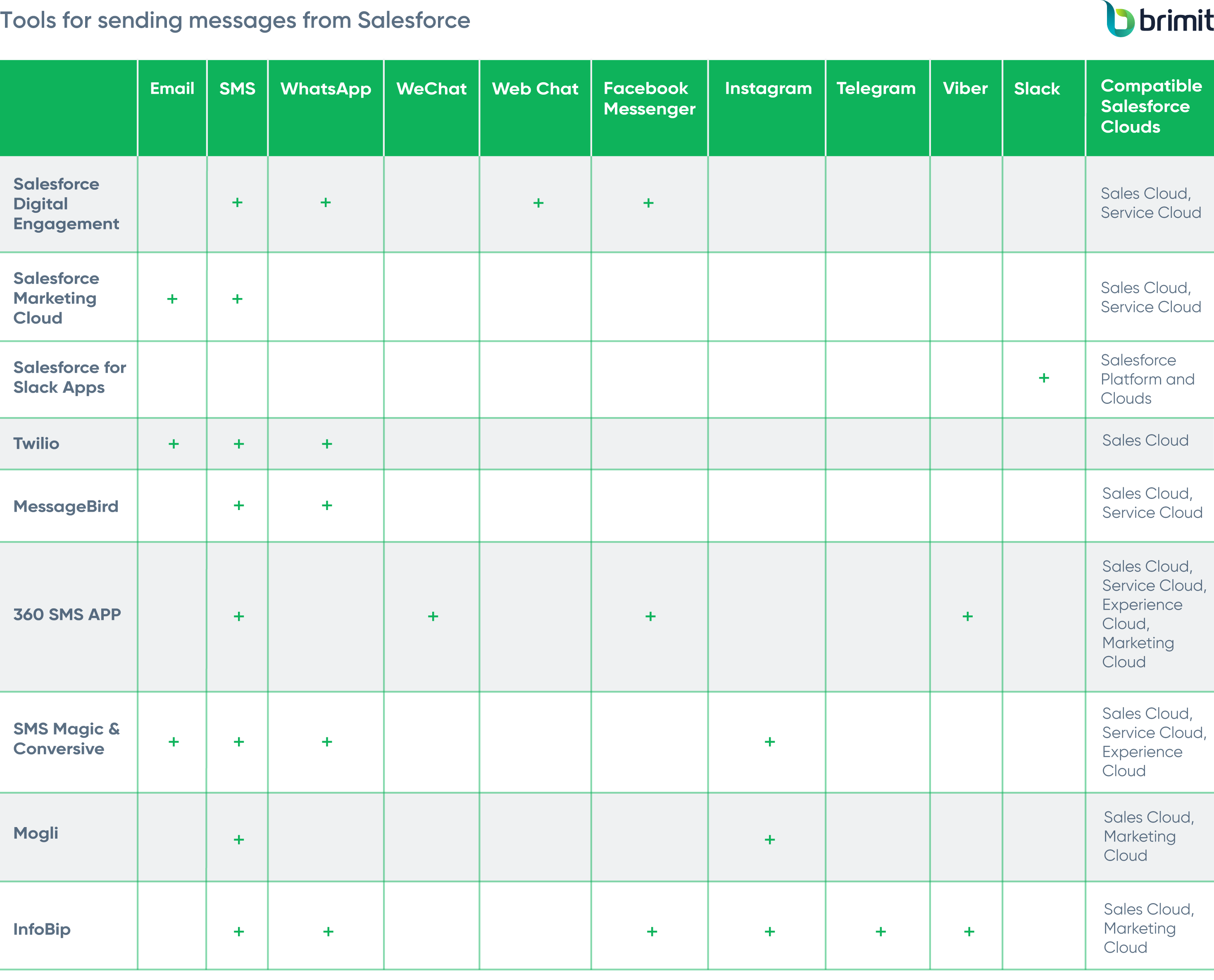
The COVID-19 restrictions are over, but customers’ habits remain the same. Instead of interacting face to face, vendors have to reach customers through messages and emails. Likewise, customers are emailing sales reps and opening chat sessions to get inbound service. The rise of AI services has boosted the growth of digital communication even more. This, combined with the demand for convenient messaging options, has required changes to commercial software—primarily augmenting technical capabilities to connect with customers via their preferred channels.
According to Forrester’s 2024 US Customer Experience Index, only 3% of companies are currently categorized as customer-obsessed, defined as putting customers’ needs, desires, and satisfaction at the forefront of all business decisions and actions. Customer-obsessed organizations reported 41% faster revenue growth, 49% faster profit growth, and 51% better customer retention than non-customer-obsessed organizations.
To meet customers’ needs and expectations, companies using Salesforce CRM should be interconnected with popular communication channels such as SMS/MMS, email, web chat (Salesforce Chat), Slack, Facebook Messenger, Instagram, WhatsApp, WeChat, and Viber.
In this blog post, we will consider some tools for communicating with customers through various messengers right from Salesforce. At the end of the post, you will find a handy table summarizing these tools and the supported digital channels.
Salesforce Products for Messaging
Salesforce provides several products that allow companies to connect with customers via their preferred messaging apps. Before selecting a product, Salesforce users should ensure they have a Service Cloud User or Sales Cloud User license and licenses for the different messaging services they want to use.
Salesforce Digital Engagement
Salesforce Digital Engagement is an add-on product that works with Sales and Service Cloud. The product is used to send and receive SMS, as well as respond to messages on WhatsApp, Web Chat, and Facebook Messenger. Digital Engagement includes the following features:
- Outbound and inbound messaging across SMS, WhatsApp, and Facebook Messenger
- Chatbots that allow you to automatically answer routine questions and resolve common issues
- Web Chat, which allows sales reps to interact with multiple customers simultaneously (These conversations are recorded and can be automatically linked to contacts stored in Salesforce.)
The pricing for Digital Engagement varies depending on the number of channels used, chatbot conversations, and Salesforce Super Messages, which includes every outbound, inbound, or automated message sent through the platform.
Messaging Within Salesforce Marketing Cloud
Salesforce Marketing Cloud offers several products for establishing and reinforcing communication with customers through SMS/MMS and email. If you already use Sales/Service Cloud and are considering purchasing Marketing Cloud, it would make sense to combine their functionalities to allow communication via messaging apps:
- Marketing Cloud allows users to create and trace customer journeys.
- You can create segmented audiences in Salesforce and send emails to campaign members based on profile data.
- You can create mobile messages, deliver targeted notifications and real-time email alerts in Salesforce, and integrate mobile messages with other communication channels.
The pricing for Marketing Cloud is extremely varied since Salesforce provides so many packages and editions of the product to meet a host of different business needs.
Salesforce Apps for Slack
Salesforce acquired Slack in 2021. For now, there’s a suite of Salesforce for Slack integrations that can be used either separately or in combination:
- Salesforce for Slack (general integration)
- Sales Cloud for Slack
- PRM for Slack
- Service Cloud for Slack
- CRM Analytics for Slack
- Marketing Cloud Account Engagement for Slack
- Tableau Next App for Slack
- Financial Services Cloud for Slack
- Trailhead App for Slack
The apps allow users to access Salesforce records, update opportunities, and collaborate without leaving Slack. The pricing for these integrations depends on which Slack subscription plan you’re on and the specific Salesforce products in use.
Salesforce Managed Packages
1. Twilio for Salesforce
Twilio for Salesforce leverages SMS in Salesforce, allowing Sales Cloud users to send and receive messages directly from their Salesforce platform, with automation and personalization capabilities. The tool has the following features:
- The package works out‑of‑the‑box in the Salesforce environment so that you can build and control messaging flows with drag-and-drop and Salesforce’s UI elements.
- Twilio allows you to personalize and automate messaging for campaign members—contacts, leads, and Person Accounts.
- The tool provides 15 standard reports for analyzing contact engagement and results of messaging campaigns.
2. MessageBird for Salesforce: Multichannel Conversations & Messaging
MessageBird for Salesforce works with Sales and Service Cloud. This managed package can be used to engage with customers via SMS and WhatsApp in Salesforce. The package has the following benefits:
- MessageBird gathers dialogues from all messaging channels in one place and enables a multichannel view of conversations.
- The tool can provide you with local phone numbers in 150+ countries.
- The app provides SMS templates with the option to add a hyperlink to a message with click tracking.
- It can be linked with Salesforce customer IDs for a 360° customer view of conversations and transactions
3. 360 SMS APP
360 SMS App is suitable for SMS/MMS as well as text messages and voicemails on WhatsApp, Facebook Messenger, WeChat, and Viber. This package supports Sales, Service, Experience (Community), and Marketing Cloud. In addition to supporting these communication channels, 360 SMS App provides the following advantages for its users:
- With 360 SMS App, you can send automated/triggered single and bulk SMS and MMS.
- The tool supports two-way messaging in WhatsApp and WhatsApp Live Chat from a website.
- It provides computer telephony integration so that users can make, record, and retrieve calls without switching pages.
4. SMS Magic & Conversive | Conversational Messaging
SMS Magic and Conversive is another persistent contender for conversational messaging. It provides multichannel messaging capabilities, including SMS, email, WhatsApp, and Instagram. The package requires Sales Cloud and is also compatible with Service and Experience Cloud.
SMS Magic and Conversive stands out for the following reasons:
- It provides an opportunity to communicate across SMS, WhatsApp, email, and other channels in one place.
- The package automates conversations with AI-assisted messaging to handle FAQs, schedule meetings, and respond to common inquiries.
- SMS Magic ensures security and regulatory compliance, including compliance with GDPR, TCPA, CCPA, and CASL messaging regulations.
- Assistance is provided in setting up the necessary messaging systems with different types of phone numbers: Short Code, TFN, and 10DLC.
5. Mogli: 5-Star SMS and WhatsApp Text Messaging
Mogli was built on Salesforce and designed to allow companies to send SMS and WhatsApp messages. Like the packages mentioned previously, it requires Sales Cloud. Mogli is also compatible with Service Cloud, Marketing Cloud Engagement, and Marketing Cloud Account Engagement. The package offers several strategic advantages:
- It eliminates data silos, as Mogli is a Salesforce-native product that operates entirely within the platform.
- The package supports two-way bulk SMS, text-to-voice, and Fi auto-dial to reach more contacts.
- With Mogli, it’s possible to create and insert custom short URLs into text messages, which is beneficial for brand recognition and SMS carrier compatibility.
Third-Party Integrators
InfoBip
InfoBip is a popular third-party product for connecting Salesforce with different messengers. It can be used to communicate via WhatsApp, SMS, Facebook Messenger, Telegram, Instagram, and Viber, which is particularly valuable for certain audience segments. InfoBip works with Marketing and Sales Cloud and allows you to:- Segment an audience for marketing campaigns based on different characteristics
- Create, personalize, and send messages to target segments and receive replies through the same channels
- Send bulk messages via all the supported channels

Business Insights: How Messaging in Salesforce Drives Growth
Depending on the channels and settings, companies can rely on messaging to perform the following tasks:
- Promote their companies’ products
- Provide efficient customer service
- Deliver critical information about transactions and events
- Enhance their brand awareness
Combining Salesforce and messaging tools can bring a host of benefits for businesses.
Stronger customer relationships, engagement, and satisfaction
64% of consumers prefer to buy from companies that tailor their experience to their wants and needs. Selecting the right messaging channel, fine-tuning it with your Cloud, and enhancing communication with the help of AI agents can help you find the way to your customers' hearts.
Faster decision-making and business efficiency
Over 90% of text messages are opened within three minutes of receipt. Integrating Salesforce with popular messengers enables real-time communication, which facilitates quicker decision-making.
Higher employee productivity
Real-time interactions in messaging apps, combined with the use of generative AI tools, enable your employees to promptly address client inquiries, reducing delays and enhancing communication efficiency. Deloitte’s productivity research also supports this approach.
Cost savings and operational efficiency
Integrating popular communication and messaging services with Salesforce can result in significant cost reductions since Salesforce's technical infrastructure facilitates smooth integration with such tools. Schneider Electric, which has leveraged Salesforce's integration capabilities, reported a $2.7 million savings in IT costs over three years.
About Brimit
Brimit is a Salesforce Partner that helps businesses keep customers engaged, personalize offers, and connect with customers at the right time to close more deals. As a Salesforce Marketing Cloud agency, we implement and customize Marketing Cloud, set up marketing tools, streamline complex business scenarios, configure apps from AppExchange, and help businesses administrate and support their Marketing Cloud.

